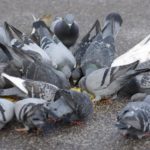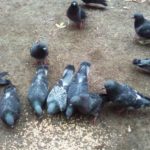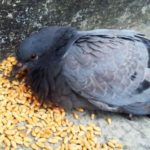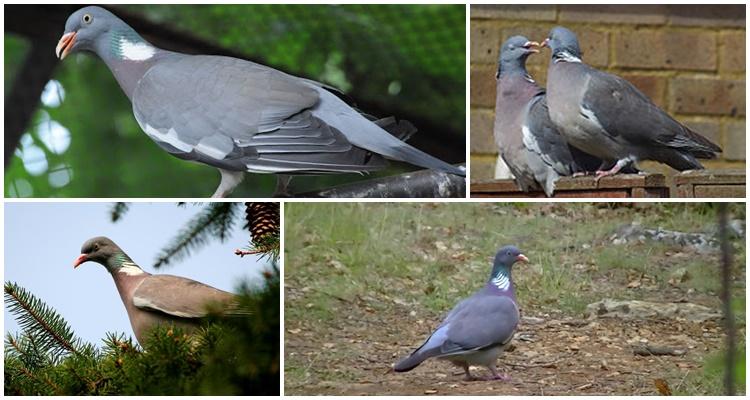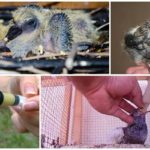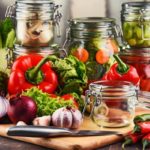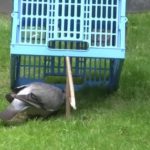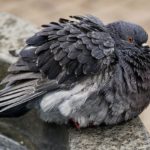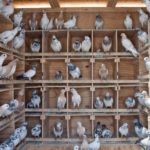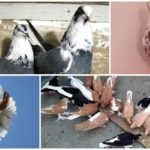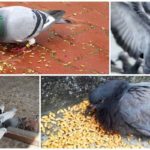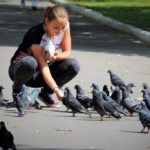Not all pigeon fanciers keep entire flocks of birds. Someone admires a couple cooing peacefully nearby, sweetly caring for each other. It happens that pigeons play funny games on the fly. Such a poultry farmer does not carry food from the market with his chuvals, but looks into the kitchen cabinet, looking for something to share with his feathered friends. The gaze will stop, first of all, on pearl barley with the thought: is it possible to feed pigeons with it?
Is it possible to give pearl barley to pigeons?
Barley is barley that has been hulled. All birds love grain. This is their main food.The large size of the pearl barley grain does not become an obstacle for the pigeon, since it is a fairly large bird. Stray birds or those that are allowed to fly freely by their owner independently find barley grains at elevators, transfer points, and even in the field. It is no more difficult to train domestic pigeons to eat pearl barley than any other food. Their digestive tract is prepared to process such food.
Pros and cons of the product
Like any food, pearl barley cannot satisfy all the nutritional needs of a pigeon’s body. It is only a component of the diet. After all, even ownerless pigeons eat grass and berries, in addition to grain. Keep insects out.
Human imagination and possibilities are greater. To find the right place for pearl barley in a balanced pigeon menu, the owner must know what beneficial substances it contains. They characterize the positive qualities of the product.
| Barley ingredients | Quantity per 100 g of edible part |
| Carbohydrates | 62.12 g |
| Alimentary fiber | 15.6 g |
| Vitamin B1 (thiamine) | 0.19 mg |
| Squirrels | 9.91 g |
| Vitamin B6 (pyridoxine) | 0.26 mg |
| Vitamin B3 (PP, nicotinic acid) | 7.35 mg |
| Potassium | 280 mg |
| Magnesium | 79 mg |
| Phosphorus | 221 mg |
| Iron | 2.5 mg |
| Copper | 0.42 mg |
| Manganese | 1.32 mg |
| Selenium | 37.7 mcg |
| Zinc | 2.13 mg |
The quantitative content of pearl barley elements listed in the table is greater than in most other plant foods. The energy value of the cereal, due to the abundance of carbohydrates (83.23%), is high - 352 Kcal/100 g.
There is not just a lot of protein in pearl barley: it contains 11 amino acids in large quantities, not counting others in small proportions.
There is little barley grain:
- fats;
- vitamins K, B2, B4, B5, B9;
- calcium.
Vitamins A, B12, C are almost absent.
How to give it correctly?
You can pour pearl barley into feeders in dry form. But water must always be available. The pigeon's esophagus is designed in such a way that the grain is retained in the crop and swells. The bird also pecks at gravel to grind food, especially whole grains.
If a bird is reluctant to eat pearl barley or there is undigested grain in its droppings, this does not mean that the pigeon does not like such food. It is necessary to pour gravel or pieces of other rocks that are difficult to crush into the enclosure. If the pigeons went on a hunger strike not because of illness, their appetite will immediately return.
Raw pearl barley is superior to boiled grain in terms of the content of useful ingredients. The energy value of cereals after cooking is reduced by 3 times. The amount of proteins and carbohydrates is reduced by 3.5 times. The presence of remaining amino acids by volume is not worth attention. The exception is tryptophan, the amount of which decreases by more than 4 times. The presence of vitamin PP, manganese, copper and selenium is also noticeable.
In addition, cooked porridge in large quantities can clog a pigeon's esophagus. The viscous mass sticks together the pebbles inside the muscular stomach, and the digestive juice can no longer cope with the load.
In order for pearl barley not to be to blame for the poor health of pigeons, it is necessary to add food with the missing elements.
| Component name | Product containing it |
| Calcium | Green grass, fish meal. |
| Vitamin C | Vegetables and fruits. |
| Vitamin A | Fish oil, carrots, pumpkin. |
| Fats, vitamin B12 | Animal feed. |
| Vitamin K | Greens, nettles, cabbage. |
| Vitamin B2 | Yeast, fishmeal. |
| Vitamin B4 | Eggs for pigeons. |
| Vitamin B5 | Legumes, yeast. |
| Vitamin B9 | Carrots, alfalfa, clover. |

